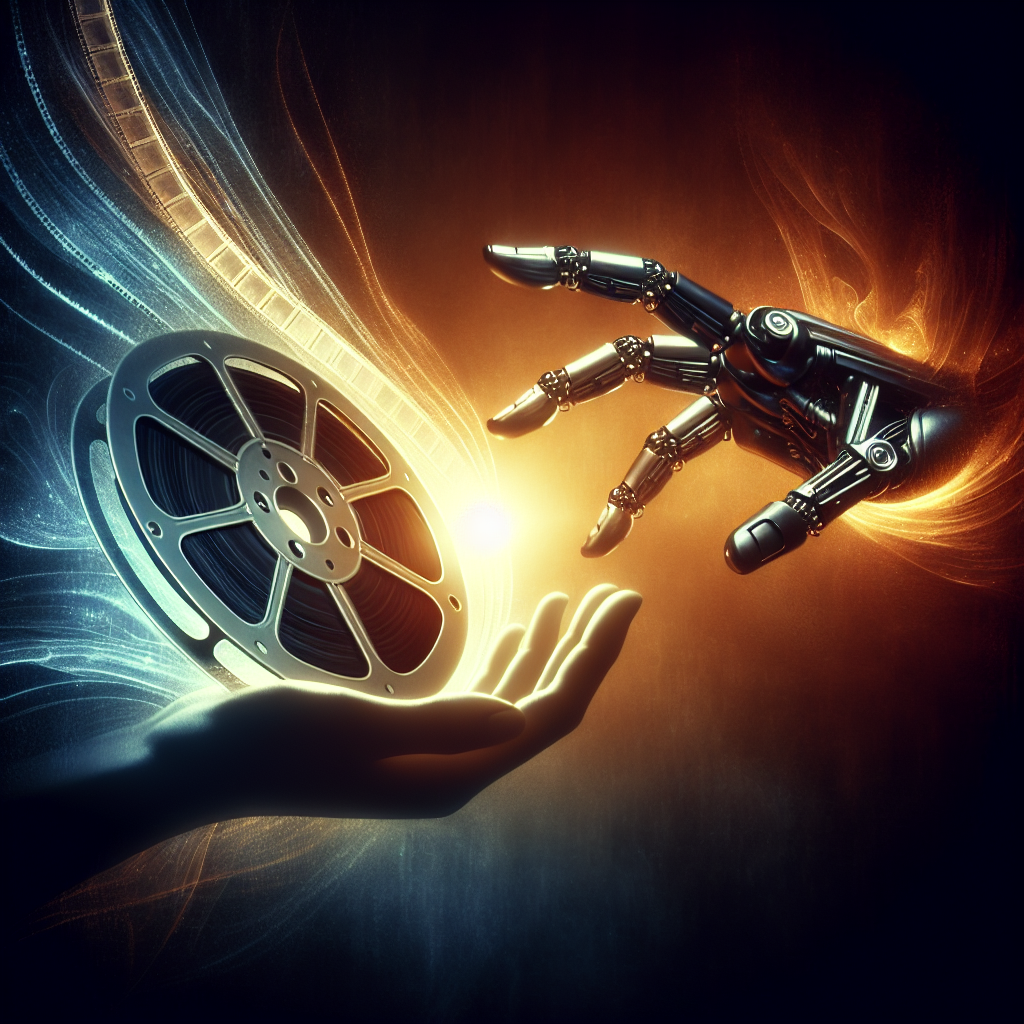
Park Chan-Wook's latest project, 'No Other Choice,' adapted from Donald Westlake's novel, offers more than a cinematic experience—it is a timely meditation on authorship in an era increasingly dominated by algorithms. At a time when AI is often heralded as the great democratizer of creativity, Park’s return reminds us of the nuanced dance between human vision and machine capability. As we stand on the cusp of what AI can offer the arts, Park’s work urges a reconsideration of what it means to create and consume art in the digital age.
The release of a teaser for Park Chan-Wook's 'No Other Choice' [1] is a cultural event in its own right. Known for his ability to blend the macabre with the beautiful, Park's work offers a pertinent case study in the ongoing debate about the role of AI in creative authorship. In an era where algorithms can mimic human creativity, his adaptation of a Westlake novel stirs questions about originality, intent, and the soul of art itself. While AI has been touted as a democratizing force, offering tools to those who historically lacked access to creative resources [2], it also risks homogenizing the artistic landscape.
As globalChat and other AI interfaces [3] become more sophisticated, there is a danger that tools designed to enhance creativity may inadvertently diminish it, churning out art that feels more like an assembly line product than a unique vision. The cinematic world isn't new to this dilemma. James Gunn’s early work, like his overlooked black comedy with Rainn Wilson [4], often defied genre expectations, precisely because it was human-driven. The unpredictability of human creativity—the ability to surprise and challenge audiences—is something that AI, for all its processing power, struggles to replicate convincingly.
Park Chan-Wook’s keen eye and storytelling prowess remind us that the human element in art is irreplaceable. His films, known for their intricate narratives and emotional depth, underscore the importance of human intuition and cultural context—elements that algorithms can mimic but not originate. The synthesis of human creativity with AI tools can lead to groundbreaking results, but only if we remain vigilant about the potential pitfalls of over-reliance on technology. As AI becomes more prevalent, the film industry must navigate the fine line between innovation and imitation.
The risk lies in creating a monoculture of art—a scenario where every creative output is optimized for mass appeal and profitability, rather than artistic integrity. This echoes concerns in other fields, such as marketing, where the debate about 'Performance Max' strategies reveals a tension between creativity and algorithm-driven efficiency [5]. Yet, the collaboration between humans and machines need not be adversarial. Instead, it can be symbiotic, with machines handling the mundane and repetitive, freeing human creators to explore the realms of imagination and emotion.
This is the hopeful blueprint for the future: a world where AI complements rather than competes with human ingenuity, allowing for diverse voices and stories to flourish. In the end, Park Chan-Wook’s 'No Other Choice' stands as a beacon for what the future of art could be—a dialogue between the organic unpredictability of human creativity and the precision of machine intelligence. It is a call to creators to harness AI’s potential while safeguarding the ineffable qualities that make art profoundly human. As we move forward, the challenge will be to ensure that AI enriches rather than erodes the very essence of creative expression.
Sources
- ‘No Other Choice’ Teaser: Park Chan-Wook Returns with Donald Westlake Adaptation (IndieWire, 2025-07-24T16:08:38Z)
- You Fucking Moron: How to Collaborate with AI Without Losing the Plot (Ooloi.org, 2025-07-20T13:53:18Z)
- globalChat – All the AIs you vibe with, One clean interface (Betalist.com, 2025-07-23T00:00:00Z)
- James Gunn's First Superhero Movie Was A Forgotten Black Comedy With Rainn Wilson (/FILM, 2025-07-22T16:30:00Z)
- Should Advertisers Rethink The ‘For Vs. Against’ Stance On Performance Max? (Search Engine Journal, 2025-07-22T12:00:24Z)























































